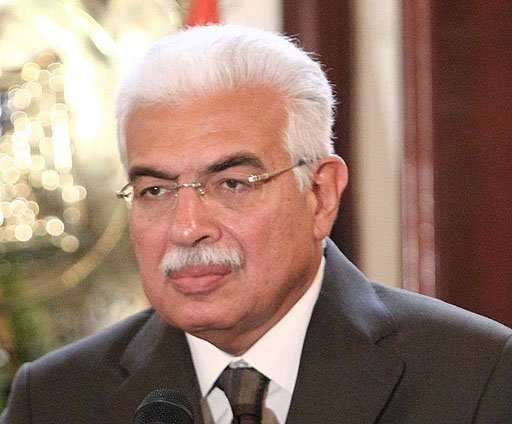By Reem Abdellatif, Amira Salah-Ahmed and Dalia Rabie
CAIRO: Clashes between protesters and army forces turned fatal on Sunday, leaving at least 24 dead and 212 injured, according to Egypt’s health ministry, as violence escalated in central Cairo and the toll continued rising.
A curfew was imposed in central Cairo and surrounding areas starting Oct. 10 at 2 am until 7 am.
Clashes reportedly broke out outside the hospital where protesters injured during ensuing violence in downtown Cairo had been taken.
A health ministry source told state TV that of the total injuries, some were treated on-site while others were released form hospital. A total of 107 civilians and 86 soldiers were still being treated after violent clashes between protesters and army forces broke out.
Clashes began after a march from Shoubra to Maspero was met with violence earlier in the day, and quickly escalated, continuing well into the night.
Eyewitnesses reported tens of possible fatalities and numerous injuries among protesters in the midst of rock throwing and outbursts of clashes between with security forces that broke out mid-day.
Sources from human rights groups reported more than 15 fatalities from the morgue at the Coptic Hospital were injured protesters were taken.
Earlier in the day, a march of around 200 began in Shoubra against a church attack in Aswan late last month, growing in number — joined by Copts and Muslims — as it headed towards a demonstration at Maspero.
Well into the evening, violence was ongoing on the Corniche road in front of Maspero, which was closed off to traffic, at time of press as well as sporadic violence on the Sixth of October Bridge.
Some eyewitnesses said protesters were heading to Tahrir Square calling for a sit-in, chanting against the ruling military council and calling for unity. As the evening wore on, protesters scattered around downtown Cairo.
Protests were reportedly being organized in other governorates including Alexandria.
Tear gas was heavily used, causing some protesters to faint. Eyewitnesses also reported thugs attacking protesters, who began their march from Shoubra peaceful and unarmed.
Prime Minister Essam Sharaf called for restraint and blamed the “enemies of the revolution who would benefit from this chaos.”
“What is taking place are not clashes between Muslims and Christians but attempts to provoke chaos and dissent,” he said on his Facebook page.
“This is not befitting the children of the homeland who remain and will remain a single hand against the forces of vandalism… and extremism,” the premier said, reported AFP.
Sharaf called on Egyptians “not to give in to sedition because it is a fire which burns up everybody and does not distinguish between us.”
Interior Minister Mansour Essawy was due to hold a crisis meeting with authorities to discuss the ongoing clashes.
“I saw people squashed, being carried away in bloody blankets. Families and children screaming. Tear gas and people shot with live ammo bleeding,” a Daily News Egypt reporter on the scene said.
Protesters said that military police fired live rounds and drove through the march with armored vehicles, reporting several injuries. Protesters also set fire to armored vehicles.
“People in army uniforms were shooting live rounds at us like we were flies, some people were able to run and others hid inside buildings,” Mariam Tawfik, a protester, told Daily News Egypt when the situation first turned violent in Maspero.
Tawfik said she saw a guy get shot in front of her, and tried to pull him aside to help.
Protesters also said that earlier the march was attacked by rocks on its way to Maspero, but it was not clear who was behind the attack.
Around 300 Muslim and Coptic protesters were gathered at Maspero, holding candles, chanting and calling for unity.
Omar Tarek, an activist and journalist, told DNE that the Coptic cause is the same as the Muslim cause.
“You can’t demolish a house of worship,” he said, “if someone told me they would demolish a mosque I would react the same way … I am here as an Egyptian, supporting an Egyptian cause.”
Abdel Tawab Hassan, an activist, said he holds the Supreme Council of the Armed Forces responsible for the church attack in Aswan, explaining that it wants to show that there is strife between Egyptians so it can continue tightening its grip and officially enact common laws.
Sarah Nader, a young Coptic protester, told DNE, “We are here today to mourn what happened [in Aswan], we don’t want people to hate us we are Egyptian like everyone else, there is no difference between us and Muslims … We are here calling for peace.” -Additional reporting by agencies

